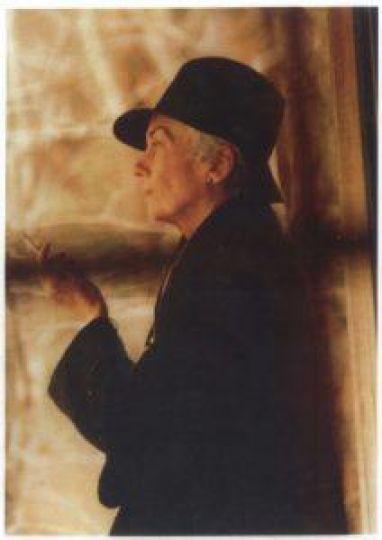Gavin The White Pony is a meetcute that goes either horribly wrong or horribly right, in a crapsack world that’s obviously been through a lot. But apparently writers can still get paid, so it’s not all bad. Their one-sided love affair is obviously not meant to be, frustrating shippers everywhere as they both hook up with characters outside the story by the end of it.
Joe This one just didn’t land for me. The setting is interesting, but the relationship that the story spends most of its time building up just ends up breaking down for mundane “one of them is more into it than the other” reasons. And then they both end up with other people. The end.There’s some interesting Clockwork Orange-esque world building through language (“the scenic spread of the tropolis through the smaze, with the astralights coming on and the sector dividers pinked out, was a lulu”), but the plot is simple to the point of thinness, and I barely care about any of the characters. The introduction says that it is “relatable in its mundanity”, and perhaps that’s the problem — if I were looking for relatable mundanity, I wouldn’t be reading SFF!
KrisI was familiar with Jane Rice from her earlier horror work so was rather looking forward to it but this also failed to land for me. Stylistically I found this one incredibly hard to read. I like experimental or dream like literature but this was just very choppy and hard to follow but then at the end was very thin what it was telling us. Ah well.
Travis I actually liked this one, but I also didn’t particularly connect with it. SFF in general could use some more slice of life type stories, and when paired with a post-unknown-disaster setting where the world is slowly healing, there’s a lot of room for bittersweet and feel-good moments to shine. I didn’t get much of either from this story. The “mundanity” aspect worked for me. The relatable did not. We don’t see much of Bill other than his one-sided pursuit of Margie, and we don’t learn much of anything about Margie because she’s aloof and held to unrealistic standards by Bill. It’s also hard to emotionally invest in a relationship we as the readers know is doomed to failure from the start. After all, the opening line is “Edna is a swell wife.“The introduction says that Rice’s work is “characterized by her ability to convey entire worlds in just a few words.” In the opening paragraph, Bill says his cat still believes in birds. This line alone hints that the story’s world has suffered a significant decline, but things are at least okay enough for Bill and Edna to have a cat and a life together. It was a powerful opening to the story. It resonated with me far more than the Clockwork Orange-esque worldbuilding Joe described, which was equal parts intriguing and confusing to visualize. A cat who still believes in birds grabs my attention and leaves me invested in getting answers. Astralights seen through the smaze being lulu just makes me question my reading comprehension.
Nina There were some things I liked about this story. The descriptions, such as the one of eating a peach, were vivid. And as the intro noted, Rice has a talent for conveying a lot of worldbuilding information in brief phrases. (One great example from this story is the line about how the cat still believes in birds.) But I didn’t really feel invested in the characters. I didn’t hate them, but I wasn’t rooting for their relationship to work out, either.
ambyr Sliding in under the wire: The gender roles and relationship structures in this story are distractingly retrogressive. I feel somewhat guilty saying that, because plenty of other stories from this era take “current” gender roles and project them unchanging into the future. But those other stories usually have other things going on – adventure plots, scientific mysteries. Here, the relationship is the story, and so I’m forced to focus on it – and I can’t suspend my disbelief that this indeterminately dated but apparently somewhat distant (the Twentieth century is in the past, at least) future would look exactly like 1960s USA when it comes to how men and women relate. I tried to lose myself in the worldbuilding, but it feels so generically proto-cyberpunk (scarce resources, people scraping along in a single vast city) that it’s hard. Charitably, perhaps it was less generic in the 1960s? There’s hints of something interesting toward the end, when the protagonist talks about running away to the “outer bounties” (are we on a post-climate-collapse Earth that’s being rebuilt, or a different planet that’s still in the process of being terraformed? The latter, I think, given the reference to “the green moon and its paler satellite,” but I’m not sure.), but it was too little, too late to really capture me.

